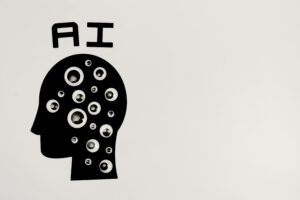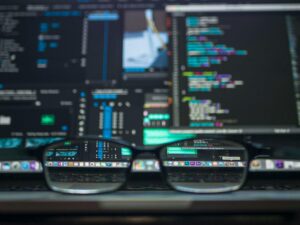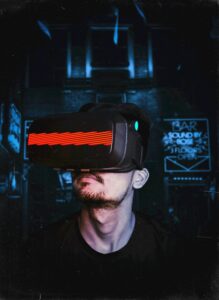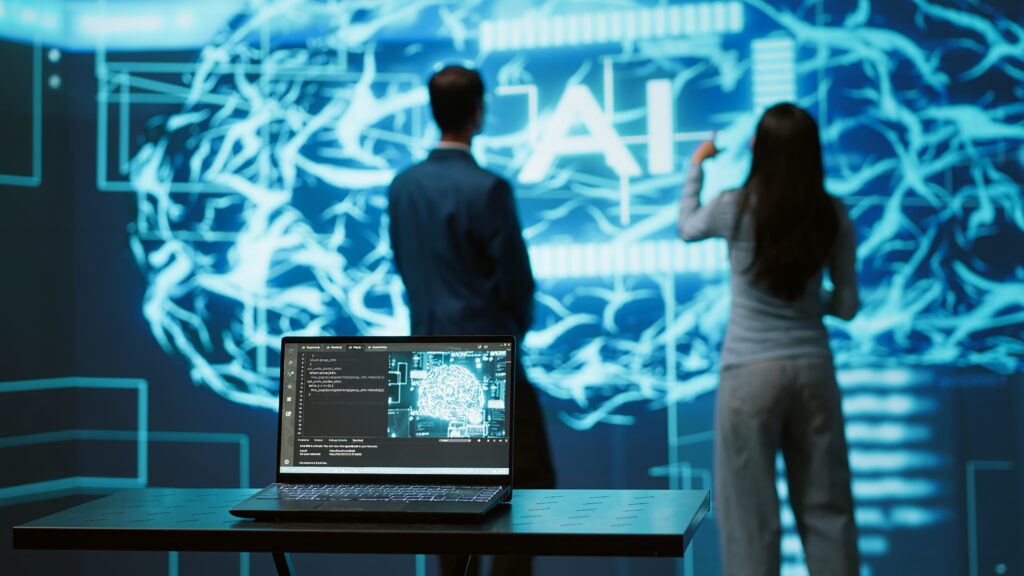
AI is emerging as a revolutionary tool for the future of technological change. It transforms existing industries and changes the way people live, work, and interact. This gap or transitional period of technological change is unprecedented, as the impact on society through applications of AI can be said to penetrate nearly every aspect of life—from healthcare and finance to entertainment and education. The approach of AI is not that the future where machines are only considered tools but a source of intelligence such that the machines themselves can be learned, adapted, and even make their own decisions.

The Power of AI on Automation
One of the biggest contributions AI has made is to automation. AI systems can now perform extremely complex tasks that were previously reliant on human interference and save time and cut down errors at hand while boosting efficiency in general. The industrial sectors that readily embrace AI include manufacturing, logistics, and customer service. For instance, the autonomous warehouse robots move goods at a faster and more efficient pace than a human worker would. In customer service, AI-based chatbots handle inquiries at all times, improve response time, and enhance the quality of the user experience.
But more relevant to this business, AI can process huge amounts of data in real time, thus assisting businesses in predicting trends and allowing for data-driven decisions. For instance, machine learning algorithms, a part of AI, are applied to historical data and predict demand, enhance inventory management, personalize customer recommendations, and shift the bar on how much productivity can be achieved at the top line, creating new business models and opportunities.
AI in Healthcare
AI transforms the healthcare sector, particularly in terms of diagnosis and drug discovery and the design of treatment. Algorithms of AI can interpret images, like X-rays or MRIs, more accurately than humans do most of the time. Such technologies permit earlier diagnoses of diseases like cancer, hence better patient results. The plan of treatment is also becoming more effective through AI since treatment plans for patients are developed separately according to the data of the patient involved.
Another prime application of AI in pharmaceutical research besides diagnostics is its usage in identifying new medicines to be used. With the processing of gigantic data sets, AI might quickly and more efficiently narrow down potential candidates than human methods. This accelerates the entire process of developing medicines and reduces costs as these life-saving medications are promptly made available to the public. The prospects of AI transforming the health care sector are tremendous and promising, with the capability to diagnose diseases and act with unprecedented accuracy in a future world.

Ethical Concerns and Challenges
Generally, the rapid progression of AI, despite this huge potential, raises certain ethical and societal concerns. One of them relates to job displacement—a consequence of the worldwide use of AI-driven automation. As such, certain jobs that previously were undertaken by people would eventually become redundant: jobs that require labor and are repetitive in nature. New jobs created in the tech and data management industries for which people are being trained may not necessarily be accessible to the population, thereby widening the skills gap needed for employability.
Another gigantic worry about the utilization of AI in making decisions is how fairly ethical it is. Many AI are trained on big datasets, thus absorbing biases in those datasets, which may reproduce the already existing inequalities. For instance, AI algorithms used in hiring or in law enforcement might unknowingly perpetuate racial, gender, or other socioeconomic biases, which will then make the decisions unfair in some sense. As AI advances, this calls for the need for fundamental ethics that are probed in the definition of AI systems as well as in their trends and application.
AI and the Future
The possibilities into which AI is opening its doors are endless. Self-driving cars, AI-generated art, and smart cities can soon redesign the way we live with our surroundings. About education, personal learning platforms based on AI will soon change the way students are taught—a personalized experience that adjusts to an individual’s understanding style and learning needs.
This is not going to go without bringing the application to prominence in everyday life since maturity displays great promises but holds unimaginable challenges that need careful attention. Incorporating the gain of AI while at the same time caring for ethical implications shows that this powerful technology stands a chance to be of use to all of humanity.

In sum, AI is not just a modern technological trend but, rather, the future of innovation, promising to reshape the industry and make life changes in ways we still don’t know much about. It is about the application of automation in industries, healthcare, or any other creative use that AI may have; it is opening the door for a new age of possibilities and a new definition for what technology can do.



